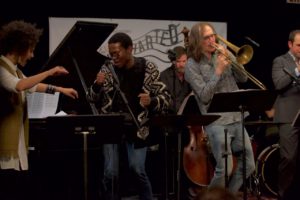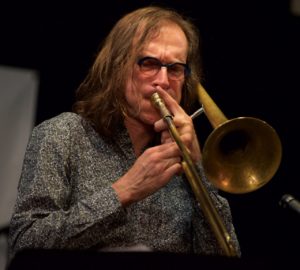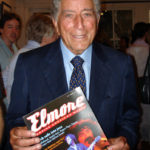The Greenwich House Music School’s “Uncharted” series (celebrating local NYC artists exploring new projects and collaborations) hosted renowned trombonist and Columbia professor Chris Washburne, celebrating the release of his new album Rags and Roots. Washburne was deliberate in wanting to make this a celebration and acknowledgment of the origins of American rag that go back to the 1700s evolving out of places like the Congo, Cuba, and Brazil. He demonstrated this relationship by playing tunes that were influenced by traditional dances in some of these countries such as the “habanera,” a dance in slow duple time, and the “bambula.”
A highlight of the evening was hearing pianist André Mehmari perform works by Brazilian composer Ernesto Nazareth (d. 1934) whose work was largely influenced by Brazilian dances such as the maxixe and choro. Compared to Joplin’s “Entertainer” rag, this Brazilian style of rag contained much more harmonic drama heard in the distressed diminished chords, change in tempi, and low guttural piano sounds.
Chris is in the process of releasing a new book on the history of Latin jazz. It is a cultural introspection into the origins of American rag and jazz music, examining old music and dance styles that were coming out of African and Latin countries and how colonialism contributed to their cross-pollination into American jazz music and also the erasure of some of the history and people that were essential in exposing these styles trans-globally.
For those who don’t crave summer reading, just pick up Chris Washburne’s new record, Rags and Roots, and just listen.
—Julia Egan









Be the first to comment!